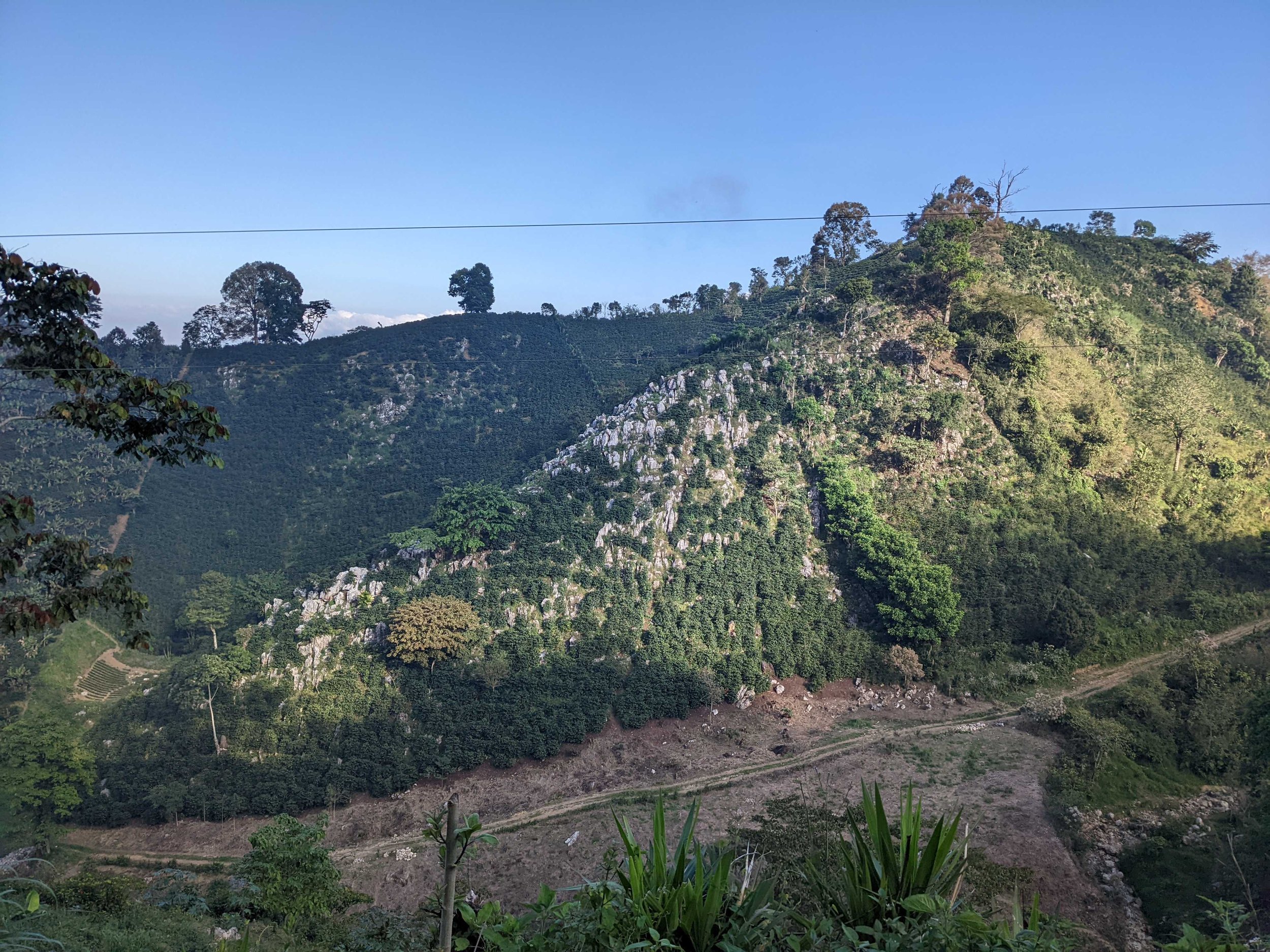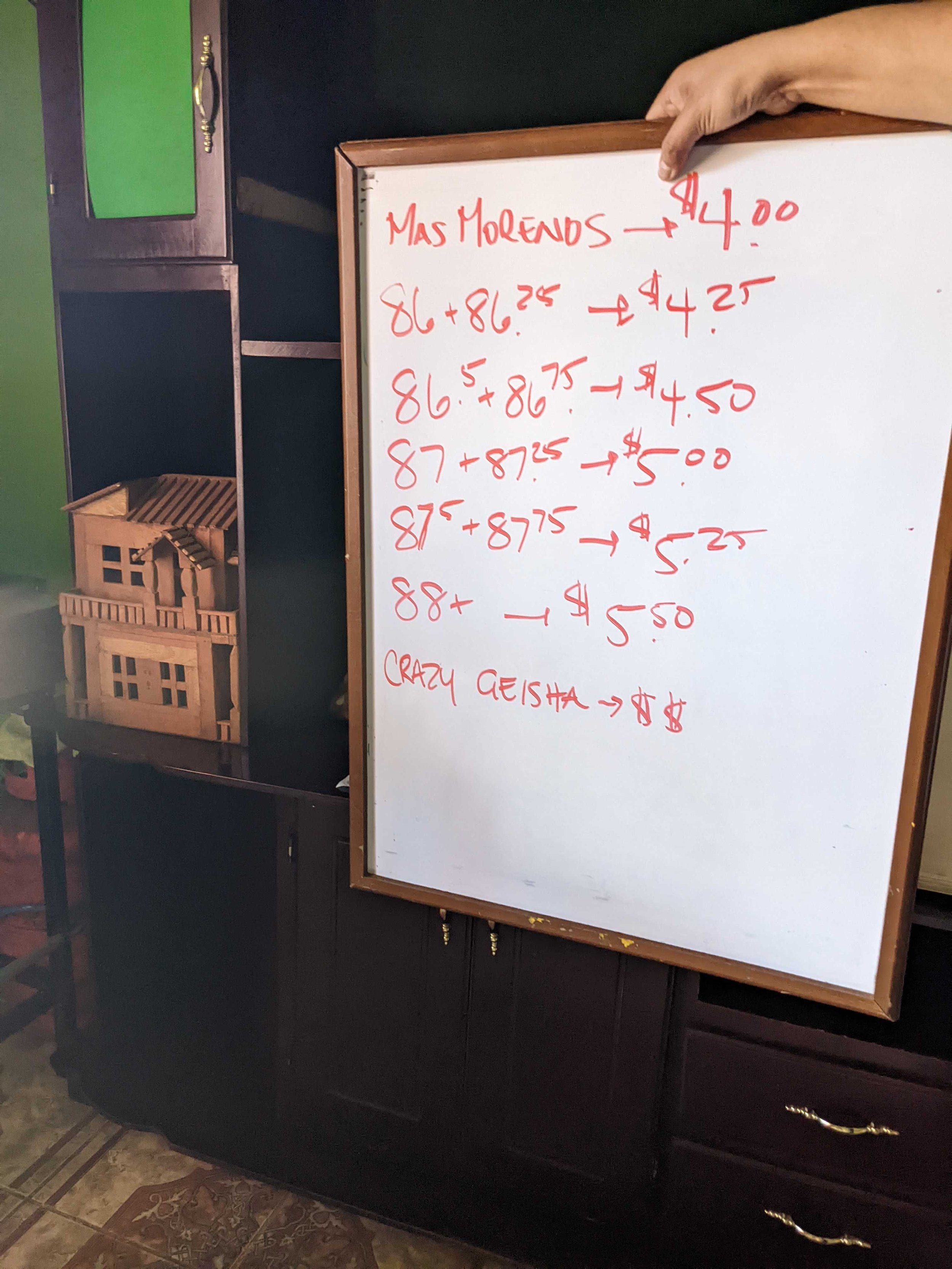It’s been a long time coming for our return to origin. Far too long. I actually found myself filled with the type of exuberance I hadn’t felt since the days leading up to my first trip as a young coffee professional. On the one hand, I’m always excited to go. It’s an extremely privileged situation that far too few people are able to experience. It’s also the type of experience that, like the one I had, can cement the decision to commit to a career in coffee. That never stops happening and it never gets boring. But it is work if you’re doing it right. Oftentimes we see origin trips through the lens of social media while scrolling through the daily feed: smiling faces of farmers; perfectly angled, cinematic shots of cupping bowls being filled; and sprawling landscapes of mountainside farms. Everything looks perfect. But it’s what happens in between those photos that really matters.
The past two-plus years have been a seemingly endless uphill battle. Starting with lockdown and the complete halting of supply chains, labor shortages resulting from those lockdowns, and increasingly common instances of detrimental climatic events…the work has been endless. And it has had a double-edged sword feel when the easiest way to resolve issues of this magnitude is to be in the same room with your partners. When the ability to do that gets taken away, communication lines crumble, communicative efficiency falls, and you’re left behind the eight ball. We’re seemingly ever-connected to each other via social networks, email, and text messages, but that will never replace what can be done with two people being face to face.
All of this is to say, a lifetime later, we finally returned to origin. Peña Blanca, Honduras to be exact. And there was work to be done. Much of it. We were finally able to sit down in the same room with members of our longest running CCS relationship: The Moreno Family.
Our relationship with the Morenos dates back to 2006. In that time, we’ve had many iterations of a program with the producers, but given the volatility and hardships felt at the farm level these past years it was time again to create a new, more current agreement.
We had a long, detailed meeting in which each member of the Moreno family in attendance was able to explain their own personal situation. It really is eye-opening to hear from a group of producers so unified in their efforts to produce quality (when it comes to sharing capital, ideas, methods, facilities, etc), who are geographically connected, and yet still face very different situations when it comes to the cost of producing their coffee. Our plan is to get an updated “Cost of Production” outlook for the 2022 harvest during our next trip to Honduras in a couple months, but the initial numbers we were given ranged anywhere from $2.80-$3.50 cost of production. The reasons are nothing new. Scarce labor, increasing fertilizer costs, and increasing transport costs have all played a role in making coffee much more expensive to produce. Mix in the unfortunate weather patterns and you have less total yield to spread the fixed costs among.
Lastly, you may have heard of the mudslides that hit Santa Barbara and its surrounding regions back in February of 2021 (If you have not, see: https://www.gofundme.com/f/rebuilding-coffee-families). Many families and partners of CCS were affected by the slides, the Morenos being no exception. The main road leading to their corner of El Cedral had been covered by a slide and was impassable. Thanks to donations from the amazing coffee community, some of the damage caused by the storm was funded to be repaired. But the damage from the storm was extensive, and the Morenos were laden with the cost of road repair. Yet another unforeseen expense that had a major impact.
A year later and you can still see the scarring from the slide on the photo above. The road has been renewed, but the remnants still blanket the area around it as a reminder of how quickly and easily things can change. And yet, like the road, the Morenos have weathered it all and are looking towards starting anew.
It was obvious, though, that it was time to do our part. After hours of discussion, we came to a new agreement for a pricing model going forward that was more beneficial, and more current. The Morenos said they felt this allowed them to reinvest in their farms, refine processes, and turn the focus to elevating their coffees to achieve the highest possible cup quality. We are excited for the next phase of the Moreno-CCS relationship and hope our partnership plays a role in the Morenos staying amongst the pinnacle of coffee in Honduras.
With a new agreement in place, we’ve now turned our attention to coffee-specific matters and will hopefully have some new and exciting offerings being rolled out next season. The coffees we tasted on this early harvest trip were fantastic once again. It’s good to see some things never change.
- Matt Hassell, Green Buyer & QC




